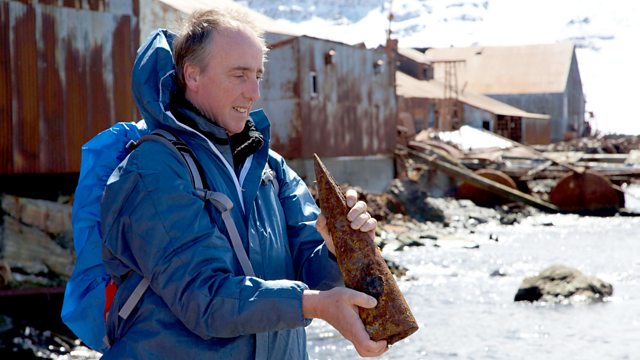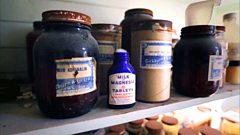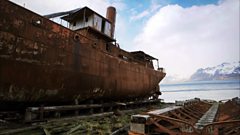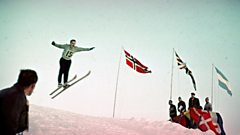
The Fall
Granted access to ruined whaling stations on South Georgia, Adam Nicolson continues to explore the role British whalers played in Antarctic whaling as late as the 1960s.
Writer Adam Nicolson continues to explore the forgotten role that British whalers played in Antarctic whaling as late as the 1960s. Granted rare access to the ruins of the whaling stations on the island of South Georgia, he charts the boom and bust of this once multimillion-pound industry. He hears first-hand about the battle between science, politics and profit that brought whales to the brink of extermination just 50 years ago and reveals the astounding role that Britain played in the international whaling industry.
A few hundred years ago, the oceans were home to millions of whales, but then we found that they were incredibly useful: by the 1920s they were even forming an essential part of Britain's fat supply to make soap and margarine. On the remote British Antarctic island of South Georgia, the centre of the industry in the 1920s, Adam explores the incredible ruins of the world's largest whaling station. Abandoned in the 1960s, Leith Harbour is a complete, but now deserted, whaling town. To fully understand how whale populations were so drastically reduced, Adam puts our modern environmental guilt to one side and, with the help of the last of the British whalers and dramatic archive film, sees the industry through the eyes of its own time.
In the mid-1920s, up to 8,000 whales a year were being processed on South Georgia to satisfy Europe's demand for fat. The whalers describe the dangers of using industrial machinery to process whales and Adam explores the hospital that treated the unlucky ones, still stocked with 1950s medicine. Meanwhile, some scientists in Britain were aware of the threat of the industry to whale populations, and a hugely ambitious piece of marine biology - the 'Discovery Investigations' - were launched. Adam visits a legacy of this program, the new ship Discovery, and learns how the original attempted to build an argument for sustainable whaling.
The industry soon found a way to become yet more effective at hunting and processing whales through a revolutionary piece of ship design, which also allowed them to dodge British attempts at regulation. Adam explores the incredible scale of the oil being sent home: by 1933, 37 per cent of the fat in British margarine was from whales. As World War Two approached, Germany and Japan joined the industry, and catches reached a staggering 46,000 whales caught in the Antarctic in one year.
While exploring an abandoned whale-catching ship and taking a peek behind the scenes at the Natural History Museum, Adam examines the tussle between the industry and science. War-ravaged Europe was desperate for fats, and new attempts to regulate the industry proved completely inadequate to protect whale populations. It wasn't until population dynamics experts were included in the 1960s that the industry began to take action to seriously reduce catches. And by then, whale stocks were in a disastrous state, with some species near extinction.
Having discovered so much about the forgotten story of British whaling, Adam attempts to find a balanced view of the industry as a whole - one that killed over 1.6 million whales in the Antarctic. He feels a deep admiration for the great skill and courage of the whalers, but, at the same time, concludes that he hates the whaling itself.
Last on
More episodes
Previous
Next
You are at the last episode
See all episodes from Britain's Whale Hunters: The Untold Story
Clips
-
![]()
The Whaling Station hospital
Duration: 01:07
-
![]()
Competition for whales
Duration: 02:22
-
![]()
Ski Jumping at the whaling station
Duration: 02:18
Music Played
-
![]()
De La Soul
Reverend Do Good #3
Credits
| Role | Contributor |
|---|---|
| Presenter | Adam Nicolson |
| Producer | Tom Beard |
| Director | Tom Beard |
| Executive Producer | Andrew Palmer |
| Executive Producer | Will Anderson |
A glimpse into the world of British whaling in the 1950s
A unique look at life working in the whaling industry in Antartica




